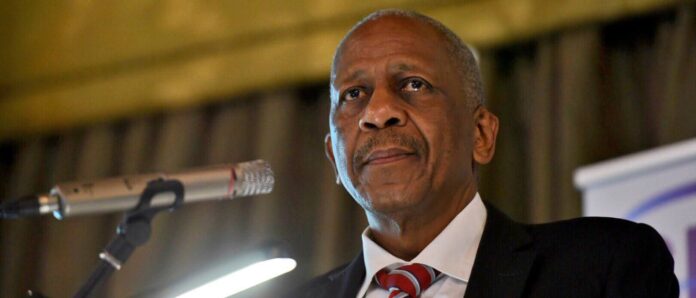Former ANC treasurer-general Mathews Phosa has thrown his weight behind the National Dialogue, describing it as “a positive development” and “a much-needed oil check” for South Africa after 30 years of democracy.
Speaking exclusively to Sunday World, Phosa said the dialogue was an opportunity for the nation to pause, reflect, and act decisively.
“It gives the nation the opportunity to do an oil check after 30 years. To determine where we did well and why, and where we messed up and why,” he said.
Beyond party lines
Phosa’s words carry weight beyond party lines. As the first premier of Mpumalanga, a negotiator in the country’s transition to democracy, a former ANC top-six leader, and a seasoned businessman who chairs boards from logistics to mining, he has spent decades straddling the worlds of governance and commerce.
Borrowing from Vladimir Lenin’s political musings, Phosa framed the exercise around two fundamental questions: What is to be done? And where to begin?
For him, the answers must be practical and urgent.
“We must answer how we grow our economy and attract new investments. How do we create new jobs when the unemployment rate is getting higher? How we promote social cohesion. Also how we strengthen good governance in public and private sectors. How we enforce the rule of law and make South Africa safe. How we modernise our state-owned enterprises and make them function properly,” he said.
Several withdrawals
Phosa’s call comes against the backdrop of controversy. Several legacy foundations have withdrawn from the Dialogue’s preparatory structures. These include the Thabo Mbeki Foundation, the Steve Biko Foundation, and the Desmond & Leah Tutu Legacy Foundation. They are citing concerns about the process being rushed and overly steered by government.
The first National Convention of the National Dialogue will take place at a University of South Africa campus in Pretoria from August 15 to 17.
Organisations like AfriForum and the Solidarity Movement have also walked away. They are claiming the conversation has been “hijacked” from civil society.
Yet Phosa insists the dialogue must go ahead. He is warning that the stakes are too high for the nation to lose this opportunity to reset its course. He listed crime, corruption, load-shedding, and homelessness among the crises demanding collective solutions. Alongside the need to improve health and education systems.
Adapting to change
With an eye on the future, Phosa said adapting to the realities of artificial intelligence and technological change was non-negotiable.
“We must adapt or die. We can’t live in museums of the past. And we have landed on new equilibriums, technologically speaking. We must all adapt or die.”
In his view, the Dialogue must also reaffirm South Africa’s constitutional promise.
“South Africa belongs to all who live in it — black and white.” he said.




